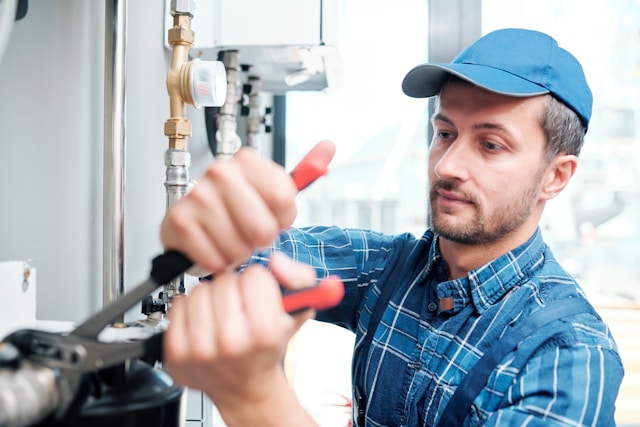With growing concerns about water conservation and environmental sustainability, eco-friendly plumbing solutions are becoming increasingly popular. Adopting these practices not only helps reduce your water and energy consumption but also saves money in the long run. Here’s a guide to making your plumbing system more environmentally friendly.
1. Install Low-Flow Fixtures
Why It’s Important:
Low-flow faucets, showerheads, and toilets use significantly less water than traditional models without sacrificing performance.
What to Do:
- Replace old toilets with WaterSense-certified low-flow models, which use about 1.28 gallons per flush compared to the standard 3.5 gallons.
- Install aerators on faucets and low-flow showerheads to reduce water usage.
2. Switch to Tankless Water Heaters
Why It’s Important:
Tankless water heaters provide hot water on demand, eliminating the energy wasted in keeping a tank of water hot.
What to Do:
- Install a tankless water heater to improve energy efficiency.
- Choose an Energy Star-certified model for maximum savings.
3. Fix Leaks Promptly
Why It’s Important:
A dripping faucet or leaking pipe can waste thousands of gallons of water annually.
What to Do:
- Regularly inspect your plumbing for leaks and repair them immediately.
- Check under sinks, around toilets, and in basements for signs of water damage or moisture.
4. Use Greywater Recycling Systems
Why It’s Important:
Greywater systems reuse water from sinks, showers, and washing machines for non-potable purposes like irrigation.
What to Do:
- Install a greywater recycling system to reduce your freshwater consumption.
- Use this recycled water to water plants, flush toilets, or clean outdoor areas.
5. Collect and Use Rainwater
Why It’s Important:
Rainwater harvesting systems can provide a sustainable source of water for outdoor use.
What to Do:
- Install a rain barrel to collect rainwater from your roof.
- Use the collected water for gardening, washing vehicles, or cleaning.
6. Upgrade to Energy-Efficient Appliances
Why It’s Important:
Modern dishwashers and washing machines use less water and energy compared to older models.
What to Do:
- Replace old appliances with Energy Star-certified models.
- Choose front-loading washing machines, which are more water-efficient than top-loading ones.
7. Opt for Sustainable Pipe Materials
Why It’s Important:
Eco-friendly materials reduce your home’s environmental footprint and last longer, reducing waste.
What to Do:
- Use PEX pipes, which are more sustainable and energy-efficient during production compared to traditional materials like copper or PVC.
- Ensure proper insulation for all pipes to minimize heat loss.
8. Practice Smart Water Use
Why It’s Important:
Simple changes in daily habits can significantly reduce water waste.
What to Do:
- Turn off the tap while brushing your teeth or washing dishes.
- Run dishwashers and washing machines only with full loads.
- Install dual-flush toilets to control water usage per flush.
9. Maintain Your Plumbing System
Why It’s Important:
Well-maintained plumbing operates more efficiently, conserving both water and energy.
What to Do:
- Schedule regular professional inspections to identify inefficiencies.
- Clean faucet aerators and showerheads to maintain proper water flow.
10. Advocate for Water-Saving Practices
Why It’s Important:
Raising awareness helps encourage others to adopt sustainable habits.
What to Do:
- Educate your family on the importance of conserving water.
- Share eco-friendly plumbing tips with friends and neighbors.
Conclusion
Eco-friendly plumbing solutions not only contribute to a sustainable environment but also lower your utility bills and enhance the efficiency of your home. By making small changes like installing low-flow fixtures, recycling water, and maintaining your plumbing system, you can make a significant impact.
Adopt these green practices today, and you’ll enjoy long-term savings while doing your part to protect the planet. For larger upgrades, consult a licensed plumber experienced in eco-friendly installations. Together, we can create a more sustainable future!
